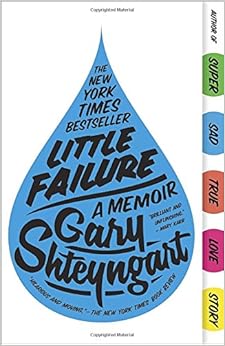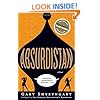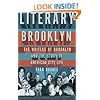
Little Failure: A Memoir
and over one million other books are available for Amazon Kindle. Learn more


Flip to back
Flip to front




Little Failure: A Memoir Paperback – October 7, 2014
See all 5 formats and editions
Hide other formats and editions
| Amazon Price | New from | Used from |
|
Hardcover, Deckle Edge
"Please retry"
|
$12.46 | $6.06 |

$12.71
FREE Shipping on orders over $35.
In Stock.
Ships from and sold by Amazon.com.
Gift-wrap available.
NO_CONTENT_IN_FEATURE
Start reading Little Failure: A Memoir on your Kindle in under a minute.
Don't have a Kindle? Get your Kindle here, or download a FREE Kindle Reading App.
Don't have a Kindle? Get your Kindle here, or download a FREE Kindle Reading App.
Choose Your Own Autobiography
Step right into Neil Patrick Harris's shoes in an exciting, interactive autobiography that places the reader squarely in the driver's seat. Learn more
Step right into Neil Patrick Harris's shoes in an exciting, interactive autobiography that places the reader squarely in the driver's seat. Learn more
Product Details
Would you like to update product info or give feedback on images?.
|
Editorial Reviews
From Booklist
*Starred Review* Novelist Shteyngart (Super Sad True Love Story, 2010) looks back at his tug-of-war life in this caustic, funny, brash, and self-immolating memoir. Born in Leningrad, in 1972, the only child of a kindergarten piano teacher and a mechanical engineer, Shteyngart was a small, anxious, severely asthmatic boy stretched on the rack of his warring parents’ needs and worries and subjected to downright medieval treatments for his ailment. While gasping for breath and paralyzed with fear, including a terror of the Soviets’ notorious exploding televisions, Shteyngart—nicknamed “Little Failure”—became a “pathological reader.” Encouraged to write by his indomitable grandmother, who paid him for his efforts in cheese, he composed his first novel at age five: Lenin and His Magical Goose. Veering between flaying candor and chagrined adoration in his vivid depictions of his family, Shteyngart is also diabolically droll in his accounts of social absurdities, including what he basically describes as the grain-for-Jews agreement reached between Jimmy Carter and the USSR that freed Soviet Jewry, including the battling Shteyngarts. He then experienced a second life-changing liberation when he received his first inhaler. Finally able to breath, the Little Failure figures out that writing is his only defense against being a “hated freak” in a Hebrew school in Queens. Shteyngart’s penetrating attentiveness, outlandish precision, abrading and embracing humor, and ability to extrapolate larger truths about inheritance, immigration, assimilation, and creativity from his own epic floundering and yearning make for a memoir of exceptional dimension, provocation, and pleasure. --Donna Seaman
--This text refers to the
Hardcover
edition.
From Bookforum
Honest, poignant, hilarious [...] Shteyngart's stalwart refusal to cast himself as a victim sets this book apart from the majority of American memoirs, whose authors seem hell-bent on passing judgement on the people who raised them. […] Shteyngart seems to have made a deal with some minor devil (a daredevil?) stipulating that if he exposed every crack and fissure in himself, laid bare every misstep, fuckup, and psychic flaw, his memoir would be a deep and original book. If so, the payoff here was absolutely worth it. —Kate Christensen
--This text refers to the
Hardcover
edition.
More About the Author
Gary Shteyngart was born in Leningrad in 1972 and came to the United States seven years later. His debut novel, The Russian Debutante's Handbook, won the Stephen Crane Award for First Fiction and the National Jewish Book Award for Fiction. His second novel, Absurdistan, was named one of the 10 Best Books of the Year by The New York Times Book Review, as well as a best book of the year by Time, The Washington Post Book World, the San Francisco Chronicle, the Chicago Tribune, and many other publications. He has been selected as one of Granta's Best Young American Novelists. His work has appeared in The New Yorker, Esquire, GQ, and Travel + Leisure and his books have been translated into more than twenty languages. He lives in New York City.
Customer Reviews
Most Helpful Customer Reviews
49 of 53 people found the following review helpful
By
Julie H. Rose
on January 17, 2014
Format: Hardcover
Vine Customer Review of Free Product
(
What's this?
)
4 Comments
Sending feedback...
This book took me by surprise. I started reading it on a Thursday night, commented to myself that I might not finish it because I generally can't read an entire book seemingly written in jest.*
On the next day, I continued reading while eating breakfast, didn't put away the dishes, and continued reading all day, putting everything else aside, until I was done.
I laughed and I cried. I cried throughout the last chapter and until I went to sleep.
Is that enough of a review? Perhaps.
A good book touches the reader. A good book either tells the reader something they do not know, or tells them something about themselves, or both.
*Ah, but then I realized this jest is not the snarky humor of many books these days. This humor is familiar and familial, and why? This book struck me to my core. Mr. Shteyngart and I have a few things in common, but they must run deep. I'm a fourth generation American Jew, but the humor and pathos at the heart of this book came so alive to me that I forgot my age, my gender, and that I didn't spend my first seven years in the Soviet Union. The cadence of the cutting remarks, the combination of suffocating love and open hostility, the expectations of both failure and great success. . .oh it was so achingly and heart breakingly familiar. I haven't the words to explain just what happened here as I read. I am not a writer, only an average reviewer. I thank Mr. Shteyngart for his words, bringing a pitch perfect rendering of coming of age in New York to life. I know no other honorific as fitting here as the Yiddish word mensch.
On the next day, I continued reading while eating breakfast, didn't put away the dishes, and continued reading all day, putting everything else aside, until I was done.
I laughed and I cried. I cried throughout the last chapter and until I went to sleep.
Is that enough of a review? Perhaps.
A good book touches the reader. A good book either tells the reader something they do not know, or tells them something about themselves, or both.
*Ah, but then I realized this jest is not the snarky humor of many books these days. This humor is familiar and familial, and why? This book struck me to my core. Mr. Shteyngart and I have a few things in common, but they must run deep. I'm a fourth generation American Jew, but the humor and pathos at the heart of this book came so alive to me that I forgot my age, my gender, and that I didn't spend my first seven years in the Soviet Union. The cadence of the cutting remarks, the combination of suffocating love and open hostility, the expectations of both failure and great success. . .oh it was so achingly and heart breakingly familiar. I haven't the words to explain just what happened here as I read. I am not a writer, only an average reviewer. I thank Mr. Shteyngart for his words, bringing a pitch perfect rendering of coming of age in New York to life. I know no other honorific as fitting here as the Yiddish word mensch.
Thank you for your feedback.
If this review is inappropriate, please let us know.
Sorry, we failed to record your vote. Please try again
19 of 22 people found the following review helpful
By
Laurence R. Bachmann
VINE VOICE on December 4, 2013
Format: Hardcover
Vine Customer Review of Free Product
(
What's this?
)
2 Comments
Sending feedback...
Having read two of Gary Shteyngart's three novels I am not surprised I liked his memoir. I am surprised though how much and how it resonated. The author's early writing reminds me of Henry Fielding's Tom Jones: raucous, and frenetic picaresque romps that excoriate cultural mores, social climbers as well as well as politics and power of all persuasions. Therefore it was with some trepidation I approached Little Failure. It is one thing to skewer the Russian mob, start-ups or upstart pretension; quite another to skewer mom and dad, without seeming to be an ungrateful Ahole. Happily, his memoir works really well. Shteyngart manages to be funny,poignant and unfailingly honest about his parents' and his own failings and importantly, their struggle together.
It would seem hard to raise a son more neurotic or disfunctional than that quintessential Jewish neurotic New Yorker, Woody Allen. Yet Mom and Pop Shtenyngart do so and then some. The recipe for their dubious success reads something like this: start with a son whose gut-wrenching asthma exacerbates your very worst fears for your only child. Toss in a heart-wrenching and culturally dislocating emigration that make you strangers in a strange land, and oh, yeah leave behind most of your mother's family. It is amidst this backdrop that the author recounts hilarious and painful memories: learning English but keeping Russian, attending Hebrew School but sort of despising it, having an accent then not, being a minority, but hating other minorities, and finally having parents who both adore and abuse you.
These two extremes are the crux or the heart of what's the matter in Little Failure. At one end of the gamut are parents who clearly love you.Read more ›
It would seem hard to raise a son more neurotic or disfunctional than that quintessential Jewish neurotic New Yorker, Woody Allen. Yet Mom and Pop Shtenyngart do so and then some. The recipe for their dubious success reads something like this: start with a son whose gut-wrenching asthma exacerbates your very worst fears for your only child. Toss in a heart-wrenching and culturally dislocating emigration that make you strangers in a strange land, and oh, yeah leave behind most of your mother's family. It is amidst this backdrop that the author recounts hilarious and painful memories: learning English but keeping Russian, attending Hebrew School but sort of despising it, having an accent then not, being a minority, but hating other minorities, and finally having parents who both adore and abuse you.
These two extremes are the crux or the heart of what's the matter in Little Failure. At one end of the gamut are parents who clearly love you.Read more ›
Thank you for your feedback.
If this review is inappropriate, please let us know.
Sorry, we failed to record your vote. Please try again
50 of 63 people found the following review helpful
By
Timothy J. Bazzett
on January 7, 2014
Format: Hardcover
7 Comments
Sending feedback...
Gary Shteyngart's memoir, LITTLE FAILURE, is the first of his books I have read, although I have read numerous blurbs and reviews (mostly positive) of his second and third novels, Absurdistan: A Novel and Super Sad True Love Story: A Novel. The guy's stock-in-trade is obviously humor, a biting satirical sort of humor, and, if this memoir is any indication, one that does not spare those closest to him. And I know he's been pretty successful and his books have sold well, so maybe it's a generational thing, but I had trouble even liking this guy who can so freely poke cruel fun at his parents, particularly given the tremendous sacrifices they have made on behalf of their only child, sickly and asthmatic. The 'humor' is, in some cases, just too caustic and critical. Yes, he does make fun of himself too, but even so ...
While it's probably of interest only to me, I did take note of the fact that Shteyngart's family chose to leave the USSR right at the time that the Soviet military invaded Afghanistan, just before Christmas of 1979. If you had a son, it was a damn good time to get outa Dodge.
Shteyngart was only thirty-eight when he was writing this (maybe a bit young to be writing your memoirs) and the first half of the book seemed a bit slow and redundant, the humor often cutesy and forced. The second part of the book, puberty and beyond, first in Queens and then at Oberlin College, was much more interesting, although - maybe that generational thing again - I had trouble relating to his drunken stoner ways.Read more ›
While it's probably of interest only to me, I did take note of the fact that Shteyngart's family chose to leave the USSR right at the time that the Soviet military invaded Afghanistan, just before Christmas of 1979. If you had a son, it was a damn good time to get outa Dodge.
Shteyngart was only thirty-eight when he was writing this (maybe a bit young to be writing your memoirs) and the first half of the book seemed a bit slow and redundant, the humor often cutesy and forced. The second part of the book, puberty and beyond, first in Queens and then at Oberlin College, was much more interesting, although - maybe that generational thing again - I had trouble relating to his drunken stoner ways.Read more ›
Thank you for your feedback.
If this review is inappropriate, please let us know.
Sorry, we failed to record your vote. Please try again











